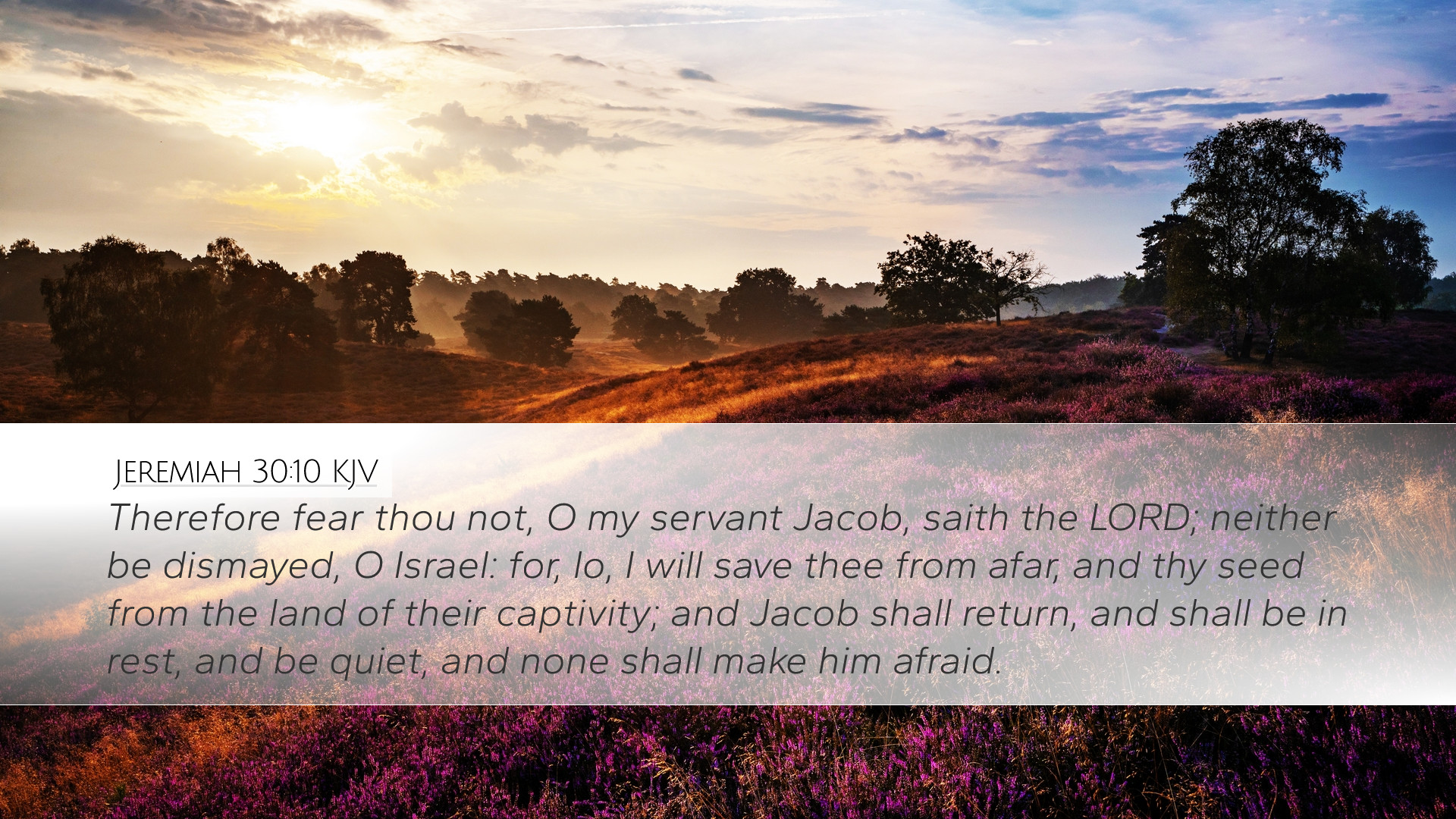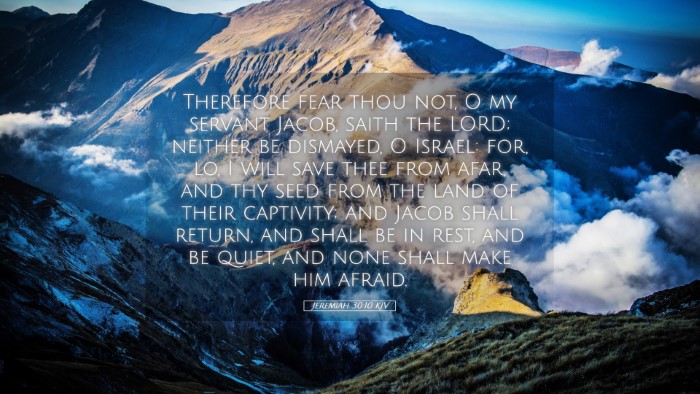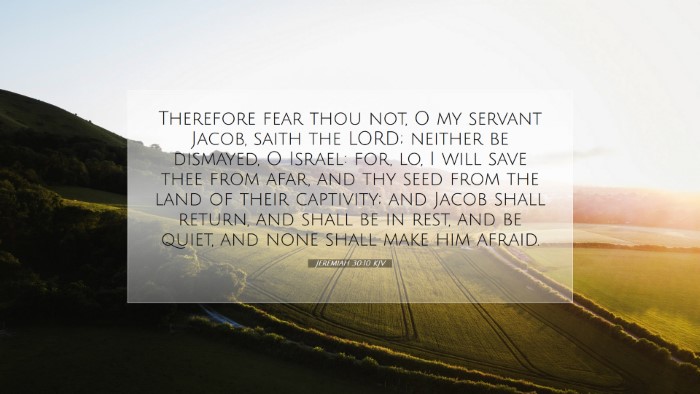Commentary on Jeremiah 30:10
Jeremiah 30:10 states: "Therefore fear thou not, O my servant Jacob, saith the LORD; neither be dismayed, O Israel: for, lo, I will save thee from afar, and thy seed from the land of their captivity; and Jacob shall return, and shall be in rest and be quiet, and none shall make him afraid."
Introduction
This verse comes from a pivotal moment in the prophetic ministry of Jeremiah, a time when Judah faced imminent calamity and exile. This portion of scripture serves as a beacon of hope amidst despair, offering promises of restoration and divine protection. The insights garnered from public domain commentaries shed light on the theological implications and pastoral applications of this verse.
Context of Jeremiah's Prophecy
The backdrop of Jeremiah's prophecies is marked by a tumultuous period in Israel's history. The nation was facing impending invasion and destruction, and the people were living in fear and uncertainty. In the midst of this, God speaks through Jeremiah not just to inform, but to reassure His people. As noted by Matthew Henry, this chapter is often referred to as the “Book of Comfort” within the larger narrative of Jeremiah, shifting focus from judgment to hope.
Exegesis of the Text
The verse is structured around several key themes:
- Divine Assurance: "Therefore fear thou not." The phrase underscores the call to trust in God's sovereignty. Albert Barnes emphasizes that the nature of God’s promises is that they are unshakeable and remain true despite human circumstances.
- The Servant and Israel: The designation of Jacob and Israel signifies the collective identity of God's people. Adam Clarke articulates that these terms encapsulate all of Israel's descendants, implying a broader implication of redemption and restoration.
- Promise of Salvation: "I will save thee from afar." This phrase indicates that God’s salvation is powerful enough to reach people wherever they are. It serves to remind the exiles that physical distance does not inhibit God’s ability to rescue them.
- Restoration and Peace: The promise that "Jacob shall return, and shall be in rest and be quiet" speaks to both physical and spiritual restoration. Matthew Henry elaborates that the peace mentioned here indicates a cessation from turmoil and internal unrest, which is a profound aspect of God’s promise of salvation.
- Assurance Against Fear: "None shall make him afraid" highlights the complete security that God provides to His people when they are in Him. Albert Barnes suggests this knits together the themes of God’s protection and the notion that true safety is found within God's covenant.
Theological Implications
The theological dimensions of Jeremiah 30:10 resonate deeply with concepts of hope, divine fidelity, and eschatological restoration. God's commitment to His covenant people, even when they stray and face consequences, underscores His unyielding love. As Adam Clarke points out, the notion of returning from captivity is emblematic of the overall redemptive nature of God's plan for humanity.
Pastoral Applications
For pastors and ministers, Jeremiah 30:10 offers profound encouragement in counseling and preaching. Here are several points to consider:
- Encouragement in Adversity: Just as God reassured Israel in their impending judgment, today’s believers can find hope in God’s promises amidst personal and communal struggles.
- Call to Faith: The divine command not to fear serves as a reminder that faith is a choice amidst fear. Pastoral care can focus on cultivating a community that supports one another in trusting God.
- Message of Restoration: The promise of returning and finding rest is vital in a world where many feel lost. It highlights the importance of preaching the message of hope and redemption.
- Security in God’s Sovereignty: Pastors should emphasize that God's sovereignty transcends all earthly powers and political situations, fostering an inner peace that guards believers against fear.
Conclusion
Jeremiah 30:10 encapsulates a rich tapestry of themes that are not only relevant to the historical context of Israel but also to the contemporary believer. The reassurance of God's unrelenting commitment to His people serves as a timeless message of hope. Whether in times of trial or tranquility, the call to trust in God's promises resonates powerfully through this verse, urging believers towards faith-focused living.
In summary, the insights from Matthew Henry, Albert Barnes, and Adam Clarke illuminate the depth of God's message via Jeremiah, empowering pastors, students, theologians, and scholars to grasp the hope entrenched in prophetic literature.


